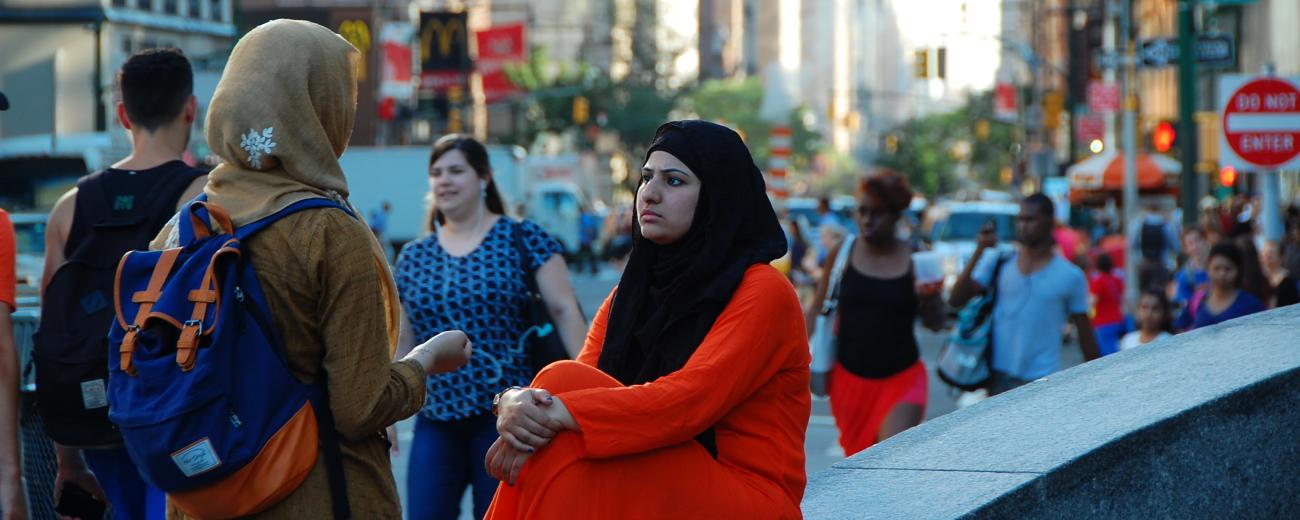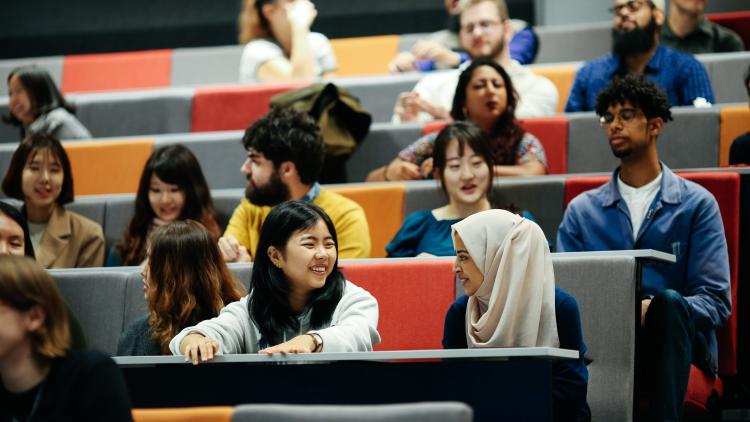Arabic and contact-induced language change


Overview
Arabic and contact-induced language change was a two-year project which ran from 2017 to 2019, led by Dr Christopher Lucas, with Hanadi Ismail as Postdoctoral Research Assistant, and made possible by a £250,000 Leadership Fellows grant from the UK Arts and Humanities Research Council.
Key publications associated with the project to date include:
- Christopher Lucas and Stefano Manfredi (eds.). 2020. Arabic and contact-induced change. Berlin: Language Science Press. (This 700-page work is fully open access and can be downloaded here).
- Breitbarth, Anne, Christopher Lucas & David Willis. 2020. The history of negation in the languages of Europe and the Mediterranean. Vol. II: Patterns and Processes. Oxford: Oxford University Press. (Available online here).
The project seeks to improve our understanding of how and why languages tend to change when they come into contact, with a particular focus on Arabic and the many languages it has influenced and been influenced by in its more than 1500 years of written and spoken history.
Strands
The project has three strands:
First, there is a theoretical strand, in which the aim is to construct a general model of the cognitive processes at work in the minds of bilingual individuals that cause them to introduce changes into one or both of their languages, extending previous work on contact between languages that are mutually unintelligible to monolingual speakers of each to changes that result from contact between related dialects.
The second strand of the project involves collaboration with Dr Stefano Manfredi (SeDyL-CNRS) to edit a reference work of Arabic and contact-induced change, with a range of chapters contributed by leading experts, giving accessible summaries of topics including: contact-induced change in the Arabic dialects of various regions, such as Morocco, Malta and Cyprus; the Pidgin and Creole varieties of Arabic spoken in Uganda, South Sudan, the Arabian Gulf and elsewhere; Arabic influences on languages such as Aramaic, Persian and Beja; and the effects of contact between different Arabic dialects. This handbook is published by Language Science Press, an open access publisher, and is freely available for anyone to download here.
The third strand of the project aims at raising awareness of the importance of language and dialect contact for the practice of 'LADO' (language analysis for the determination of origin) in asylum claims by Arabic-speaking individuals in the UK. LADO is a tool used by some governments to aid in decisions on whether asylum claims are genuine. In this process, claimants are interviewed, and their speech in this interview is examined to see whether it exhibits the known features of the dialect of their stated region of origin. But widely agreed standards of best practice in this process have yet to be adopted. A key assumption of the current project, which a number of LADO practitioners appear not to share, is that the speech of emigrant Arabic speakers will always be affected at a given time by the other languages and other Arabic dialects they are exposed to daily, as well as by the speech of their interviewer. The project aims to provide empirical support for this assumption by collecting and publishing data on the speech of Arabic speakers resident in London and the kinds of dialect mixing that occurs in this diasporic context.
In the UK, LADO may also be used at the appeal stage of an asylum claim, whereby an independent expert is contracted to re-examine the claimant's speech and produce an alternative analysis where appropriate. Here there is a problem in that experts are producing their reports in virtual isolation, without common standards of best practice, while solicitors acting for claimants seem to be contacting potential experts on a haphazard, word-of-mouth basis. The current project intends to address this problem through consultative workshops with a range of stakeholders in Arabic-based LADO.
Further information:
For further information, please contact Christopher Lucas at cl39@soas.ac.uk.




